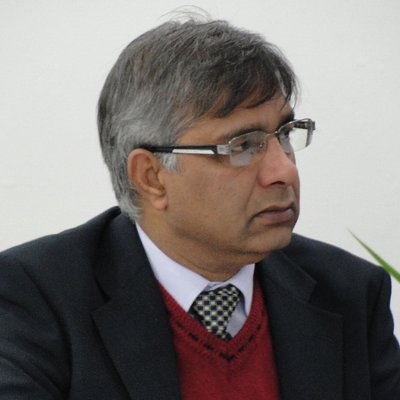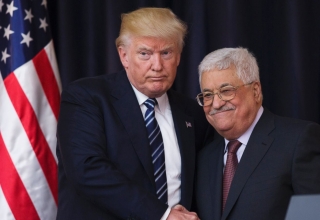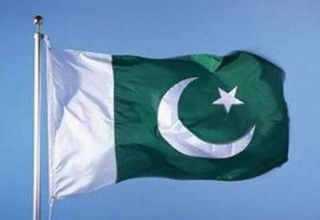
● The debate about whether a state should be religious or secular doesn’t always affect how a society treats religious minorities.
By Peter Jacob |
A significant number of states have changed their relationship with religion recently, sparking debate about official government policies towards religious minorities. Bangladesh and Nepal, for example, moved to a secular state model, while Maldives, Tunisia and Somalia enacted constitutions adopting a state religion. Switzerland, France, Belgium and Australia have adopted laws somewhat interfering with the religious freedom of citizens, reflecting a change in respective understanding of secularism and religious freedom. But how much do state policies toward religion actually affect social hostilities toward minority religious groups?
There can be stark differences in political systems in terms of the state-religion relationship, yet very similar social hostilities toward minority religious groups.
The theoretical assumption is that state restrictions inspire hostilities, which feed into further restrictions, in a feedback loop of violence. My recent research, however, suggests that there can be stark differences in political systems in terms of the state-religion relationship, yet very similar social hostilities toward minority religious groups. In my case studies, harassment, hate speech and intimidation all led to displacement, property damage, injuries, detentions and even deaths, despite a wide variance in state policy.
To study this problem in greater depth, I examined three models of the state-religion relationship that all had problems of social hostilities towards religious minority groups, despite taking quite different approaches: India, an established secular democracy; Bangladesh, which maintains a state religion constitutionally but is moving to a secular polity; and Pakistan, which is experimenting with democracy using a theocratic framework.
I chose this sample based on three considerations; a) the shared history, culture and geographic proximity; b) taken together, the countries represent a thorough religious diversity; and c) the populations in these countries constitute 22% of humanity.
Benefiting from Jonathan Fox’s World Survey Of The Religion And State, as well as Brian Grim and Roger Finke’s The Price Of Freedom Denied, I developed an inventory of questions modifying the PEW Research Centre’s measures of state-imposed restrictions and social hostilities against religious groups the world over. I added two dimensions: protections and remedies provided by states and compliance of international commitments regarding human rights, using over 70 questions and sub-questions to measure religious freedom. I filled in the answers to this inventory using published data from governmental and non-governmental sources to identify and rank the severity of different violations of religious freedom reported during 2012 in these countries.
In terms of safeguarding religious freedoms, India ranks high, Bangladesh moderate, and Pakistan low. India has imposed no religious restrictions, except in a few Indian states that maintain anti-forced conversion laws. Bangladesh is delinking its state system from religion, having imposed a ban on participation of religious parties in politics, and Pakistan maintains a number of laws restricting political and religious liberties of religious minorities.
Yet similarities exist in governments’ administrative response to emergencies, such as attacks on places of worship and providing rehabilitations. The government response to complaints about religious discrimination is dismal in all three countries. However, Pakistan and India rank high in providing rehabilitation and resettlement to victims of religious strife and attacks. On a scale of 1-5 (where five is excellent) Bangladesh score was in the middle. Similarly, India performed at an average level in administrative and police response, judicial inquiries and the implementation of the findings thereof, while Bangladesh and Pakistan are low in these areas.
Importantly, in each country in this study, hatred and violence against minority groups has become profitable. The hate campaigns were rewarded by public donations supporting such campaigns, as well as the appropriation of victims’ belongings. It is also socially and politically acceptable to discriminate against minority religions, regardless of official state policy.
For instance, there appeared to be few repercussions for profiting from religiously motivated crimes, and during violent attacks on religious minorities, local political leaders failed to protect the victims or take a political stand to isolate extremist groups. All three countries banned a number of outfits with extremist profiles, yet some of these were still in operation. Enforcement of protection measures—where they exist at all — is fairly weak.
Pakistan did show a slight higher rate of inter- and intra- religious hostility, likely due to additional restrictions, such as a ban on preaching the Ahmadi faith. Other rights disparities in the country include a constitutional bar on members of minority religions becoming president and prime minister. However, the two other countries—working with opposite models — still witnessed quite similar social hostilities against minorities.
The similarities in social hostilities in the three countries indicate that there may be other factors altering state and societal behavior toward religion, such as transnational influences and local vested interests. An attack on a mosque or a temple in one country, for example, can fuel hostilities in another country or incite transnational extremist operations. Another example is India’s strong ties to Arab kingdoms and its application for membership of a religio-political block, the Organization of Islamic Cooperation, despite the government’s “neutral” position on religion.
These findings suggest that the determination around whether a state should be religious or secular doesn’t always effect on how citizens of the majority actually treat religious minorities. Indeed, the assumption that state restrictions are the single largest determining factor behind social hostility needs to be critically evaluated. We need more empirical data to study this phenomenon.
For any recommendations on religious rights to be viable, external influences on the states and the profitability of discrimination need to be addressed. Where discrimination is deeply entrenched and rewarded, we shouldn’t expect state policy to miraculously change it, though it certainly can exacerbate it.
Editor’s note: Mr. Peter Jacob’s comment is reproduced here from OpenGlobalRights.








